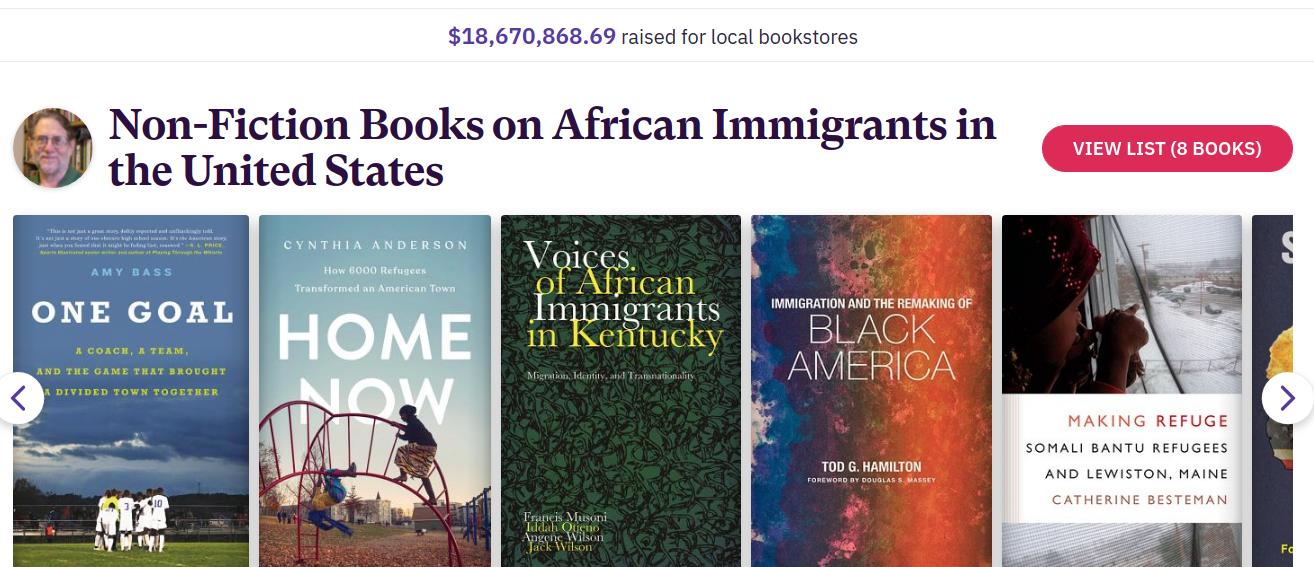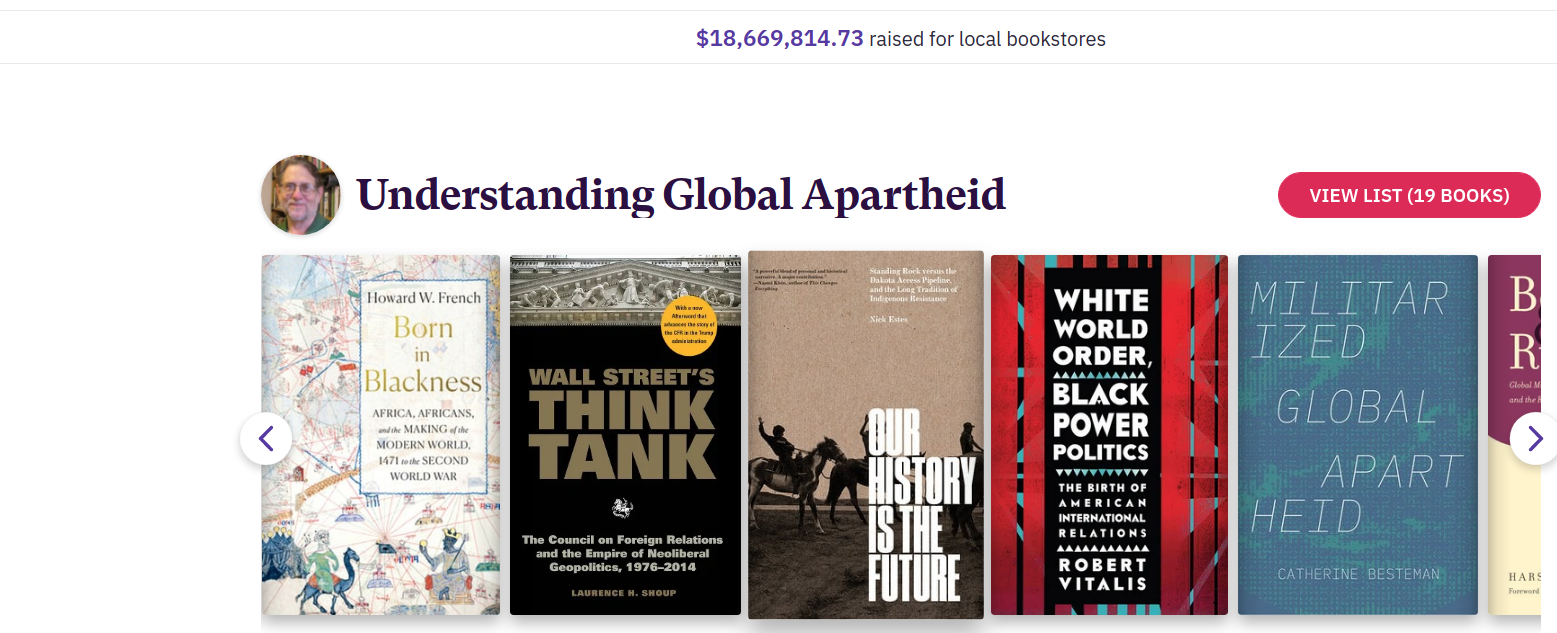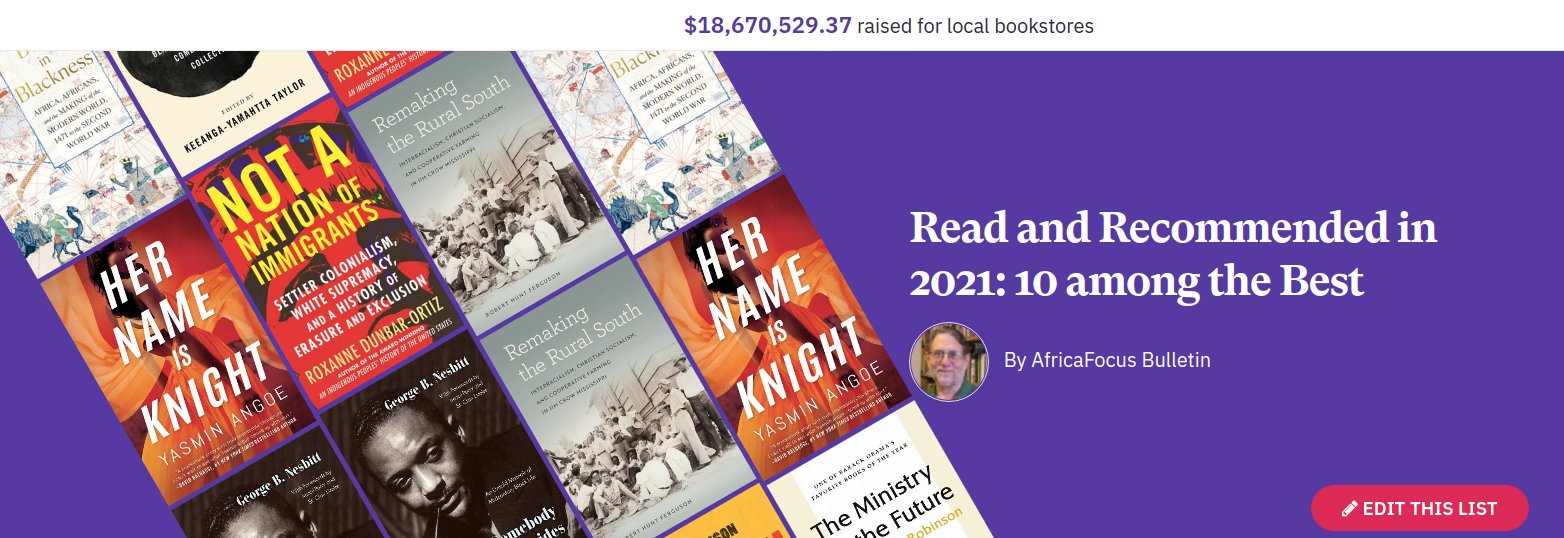Editor's Note
�This is the heart of the problem. If housing vulnerable people is an asset
class � not a social good, or a human right � then generating returns for
investors will always be in a zero-sum relationship with providing safe
housing for those people. Landlords will always be in the middle; and when
they�re taking sides, as they must in housing for profit, investors will
always win.� - Annia Ciezadlo
New this year in AfricaFocus. See �AfricaFocus Plus� below for an
update on new features (beyond this periodic Bulletin) that I am experimenting
with.
The article by Annia Ciezadlo, writing in The Guardian about the Bronx fire that killed 19 people earlier this month, continues like this:
�When housing is a commodity, and making repairs is a cost � and like any cost, it needs to be minimized so that profit can be maximized � no law changes that basic fact,� says Henr�quez [director of litigation at Legal Services of New York]. �Providing safe and decent habitable conditions for your tenants falls on the cost side of your balance sheet. And so that already creates an incentive to do as little as possible. To keep that cost as low as possible.�
Touray Tower in the Bronx, as the apartment building that burned was known in the neighborhood, and Trump Tower in Manhattan are in different asset classes of real estate. Yet another class, but only a walk away from Trump Tower, is the residence of Rick Gropper, the real estate developer who is the principal owner of the Camber Group that manages Touray Tower and sits on an advisory board for Mayor Eric Adams.
Mid-Manhattan is a preferred location for foreign investment in real estate often used for money laundering, while the real estate market in the Bronx and northern Manhattan focuses on �affordable housing� for working families in New York, where immigrant communities are often concentrated.
This AfricaFocus Bulletin contains a summary article on the Bronx fire from the Quartz Africa Weekly Brief, a publication I highly recommend.
But the best detailed coverage has been in the New York Times:
https://tinyurl.com/BronxFire-Gambia for a search and for a compilation of PDFs shared on Google drive for AfricaFocus subscribers, click here.
Other sources I found helpful for this AfricaFocus Bulletin include:
For previous AfricaFocus Bulletins on issues related to migration, visit http://www.africafocus.org/migrexp.php.

For previous AfricaFocus Bulletins on the USA and Africa, visit http://www.africafocus.org/country/usa-africa.php
For ongoing coverage of USA/Africa relations, visit https://allafrica.com/usafrica/ and
https://todaynewsafrica.com/
+++++++++++++++++++++++++++++++++++++++++++++++++++
AfricaFocus Plus
As mentioned in a message to readers in October (https://mailchi.mp/igc/new-directions), and as you will have noticed, I am publishing the Bulletin less frequently on the web and by Mailchimp email. But I am exploring new ways to reach out through other online media to continue sharing my reading and reflections with wider audiences.
If you use Facebook or Twitter or read books, I invite you to visit these sites:
AfricaFocus now has over 10,000 followers. How many people it reaches is unpredictable (only Facebook knows really). As we all know, Facebook is not anybody's friend and its goal is profit, although it has made some still largely token efforts to respond to recent critiques and whistlebrower leaks. But it does have the widest audience of any social media around the world, with almost 2.9 billion users. See https://www.smartinsights.com/social-media-marketing/social-media-strategy/new-global-social-media-research/. The latest AfricaFocus post also automatically appears on the home page of http://www.africafocus.org.
Twitter's 400 million users worldwide are much fewer than Facebook's, almost
at the bottom of the comparative list in the link above. but its users are
heavily concentrated among journalists, policy analysts, and policy makers
themselves. So it is more useful than Facebook in reaching decision-makers or
influencers. However, its culture can be every more toxic to the user, and the
pace is unbearable if you use twitter's own interface. However, it can be
managed if you only follow a few others who have content you are interested
in. And you can visit the link even if you are yourself not signed up for
Twitter.
The only way I can tolerate using it myself in by not going to http://twitter.com directly and seeing the torrent of irrelevant clutter they send you, but by using another twitter product (https://tweetdeck.twitter.com/) which enables you to curate exactly what you see, including priority accounts you choose to follow closely as well as specialized lists on a particular topic as well as sites that retweet your tweets. I have created a custom list that I follow on tax justice,and another on the Sudan.
By turning off notifications to your screen or your email, you can choose when
to check tweetdeck and make better use of your time. I've been doing this
more lately for AfricaFocus, and AfricaFocus now has almost 700 twitter
followers.
This is of far more interest to me personally than twitter, and I spend hours each day reading books while I probably spend less than 15 to 20 minutes total in a day on twitter (email and the web are probably 5 to 6 hours a day)..
Bookshop.org is a not-for-profit B-Corporation which is dedicated to
supporting independent bookshops around the United States. It's not yet
international, although they have set up stores in the UK and Spain. In
addition to raising almost $18.7 million for independent bookstores in their
first two years, they pay 10% of the list price of each book they sell to
�affiliates� that create their own shops on the site. Anyone can be an
affiliate, from book stores to publishers to NGOs to individuals who simply
like to recommend books to their friends.
One of my recent lists was featured on the home page of Bookshop.org on January 18.

I haven't earned much money from it yet (about $140), but the main point in any case is publicizing books that I think people might be interested in and/or should read. I obviously haven't read all the books I list, but I have read a fair number, and if so I have noted my opinion in an annotation (otherwise just quoting a review or the publisher's description.
Another list I recently created noted ten of the best books that I read in 2021.

Original articles in other publications
In 2020 and 2021 I have also given particular attention to writing articles for other publications, often co-authored with others. These include responsiblestatecraft.org, fpif.org, and https://africasacountry.com. I have also written or edited on a number of the web pages and posts at https://www.us-africabridgebuilding.org.
++++++++++++++++++++++end editor's note+++++++++++++++++
|
